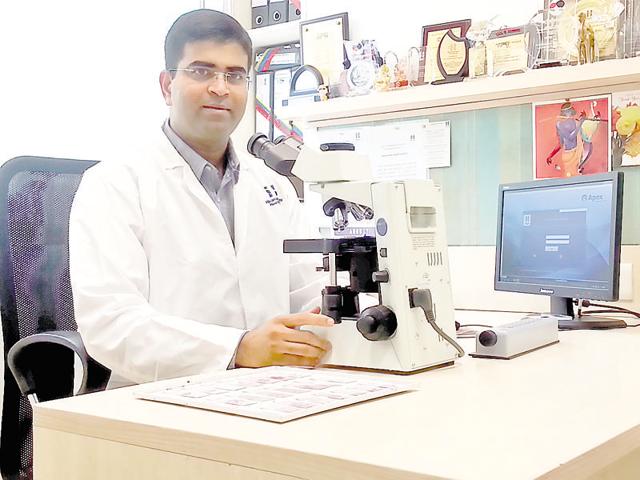All you need to know about a career as a pathologist
Pathologists conduct laboratory tests to help doctors make correct diagnosis of an illness and prescribe effective treatment for their patients
Dr Suvin Shetty, who did extremely well in science subjects at school decided to do an MBBS after Class 12. However, unlike some of his batch mates who went ahead to become physicians, Shetty wanted to do something different. He wanted to hone his managerial skills along with medical expertise.

“Pathology is one such stream in medical science that allows one to use managerial skills. It involves coordinating with the staff to help the laboratory function in a hassle-free manner,” says Shetty, who is currently a full-time consultant pathologist at Dr L H Hiranandani Hospital, Mumbai.
“Additionally, pathology also allows me to use my knowledge of medicine to perform laboratory tests to detect diseases and help physicians diagnose a patient more efficiently,” he says.
Any treatment involves two steps. The first has to do with detecting a possible cause of illness and the second is treatment of the illness. After the cause of the illness has been detected, a patient can be asked to go in for imaging or pathological tests. Whereas, imaging includes MRI, CT scan, X-Ray and sonography, pathology involves testing of body fluids like blood, urine, stool and all tissues in the body.
Read more: All you need to know about a career as a photographer
“For any pathologist who is starting out, the job can be extremely challenging as working in the industry is very different from what one learns in medical school,” says Shetty. Every postgraduate student of pathology must work with a good hospital or laboratory for some time before going for a full-time job to be able to understand their job better, says Shetty.

Convincing patients with the report findings is a major challenge.“Often, patients are not convinced with the outcome of the tests. We need to understand the mindset of the patient to be able to convince them with the findings,” says Dr Shetty.
Several health conscious people visit a clinic for a routine health check-up. Physicians too suggest basic tests to patients just to ensure that they are physically fit. But there are instances when basic health checkups reveal major diseases. It is then that it becomes extremely challenging for a pathologist to convince a patient and make him or her understand and come to terms with the findings of the pathological report,” he says.
“A few months ago, a physician had advised a patient to go in for a complete blood count test, as part of a routine checkup. The white blood cells, when examined under the microscope, were not normal. So, we took multiple samples from the patient and performed several tests and discovered that he was suffering from leukemia,” says Dr Shetty.
Constant upgrading of skills and domain knowledge is a must for every pathologist, he advises.












